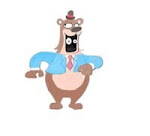Here are the notes for Classical Structure for stories by John Truby:
Classical structure deals with story structure that has been widely used throughout the ages. It deals with basic problems and situations that ordinary people deal with everyday. Thus making it universal for all to understand and a building block if one wishes to write well crafted stories. The great stories of our time are written by writers who knew classical structure so well that they could deviate or throw out all the rules altogether. Lastly the classical structure reflects life. It is life. Most everyone on earth can relate to it. Since our entertainment has been dumbed down for the masses it’s especially important to create something meaningful and relevant.
Problem need- At the beginning of the story, the hero is in trouble. He is aware of his problem but he doesn’t know how to fix it. There is something missing within the hero, which he must fulfill. The hero’s need is to overcome that weakness.
Desire- The character creates a goal based on the need.
Ex. A lion is hungry (need). He hunts prey (desire) to fill his hunger (need).
Opponent- Someone wants the same thing as the hero.
Plan-Set of guidelines the hero follows in order to win.
The Battle- The final conflict in which the ultimate test to see whether or not the hero wins. This battle is so brutal that the hero undergoes change which leads to the self revelation.
Self Revelation- The hero learns something fundamental about who he is. He will now learn the proper way to act in this world.
Expanded Classic Structure
Ghost- Is the event from the past still haunting your hero. The ghost is typically part of the need for the hero. It is also the internal opponent for the hero. The ghost is also the great fear of your hero.
Inciting incident- An event that occurs outside (world), that which causes the hero to come up with a goal to take action.
Training- The hero learns what he needs in order to reach his goal.
Towards the middle of the story the hero must become obsessed about reaching their goal. If the hero isn’t obsessed about reaching their goal, then the audience won’t care either.
Apparent Defeat- In the middle of the story the hero comes into conflict with the opponent but he’s losing. The hero begins to believe he’s been beat. The hero is at his lowest point.
Note: Since it is only an apparent defeat, the hero receives some information that leads him back to pursue his goal to which the conflict continues. And as the conflict intensifies between the hero and the opponent, the pressure on the hero intensifies. The hero’s options decrease.
Double Reversal- Not found in many stories only in great stories, will the opponent will have a self revelation. The hero learns something from the opponent and opponent learns something from the hero which is a blend of the writer’s view of a proper way to live in the world.
Cutting the classical structure in half
In simpler stories there are heroes that are enslaved in beginning of the story, then goes through a struggle, because of that struggle and by the end of the story, the hero receives freedom.
Part of that slavery is self imposed. He is enslaved because of his lack of understanding of who he is.
Review- Classical structure is the basis for storytelling and includes:
Problem need-Need of the character.
Desire- The hero’s goal
Opponent- Usually wants the same thing as the hero
Plan- A series of steps the hero has to accomplish to get his goal
Battle- The hero has to fight to receive his goal
Self Revelation- The hero learns something important about himself
New Equilibrium- The hero is at higher state when he accomplishes his goal.
Also:
Ghost- Past fears of the hero that continually haunts him
Inciting incident-A major event that sets the hero on his journey
Training- Hero has to prepare himself for battle
Apparent Defeat-hero is defeated in the beginning
Double reversal-The hero and opponent something from one another
Monday, October 29, 2007
Subscribe to:
Post Comments (Atom)

No comments:
Post a Comment